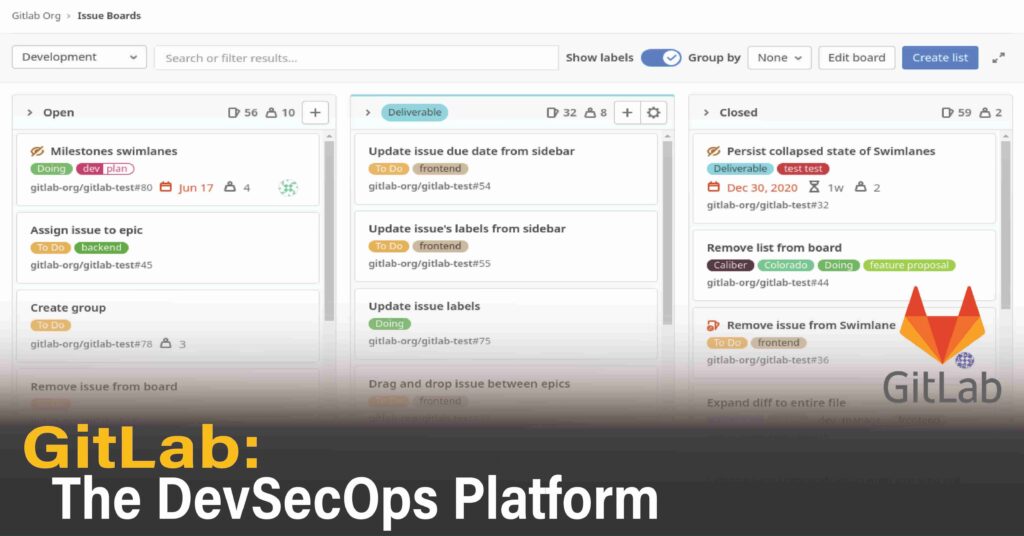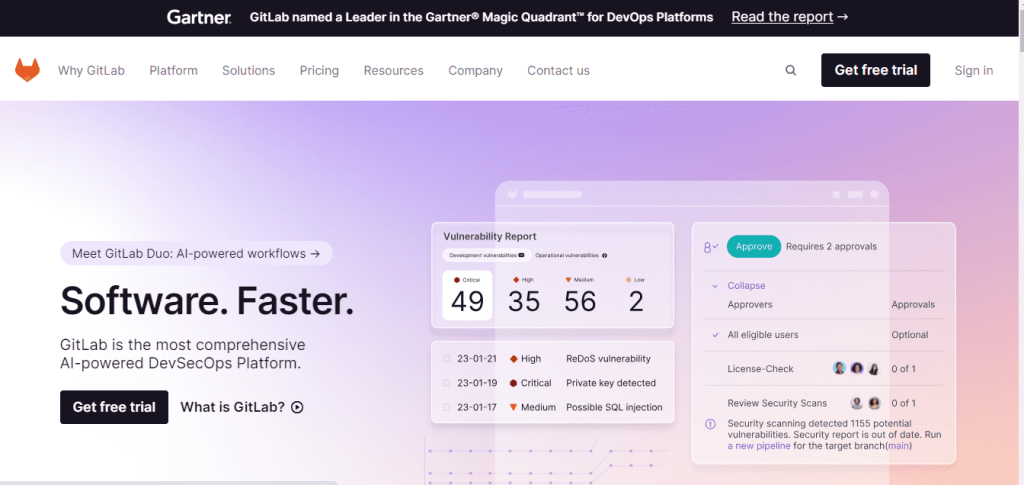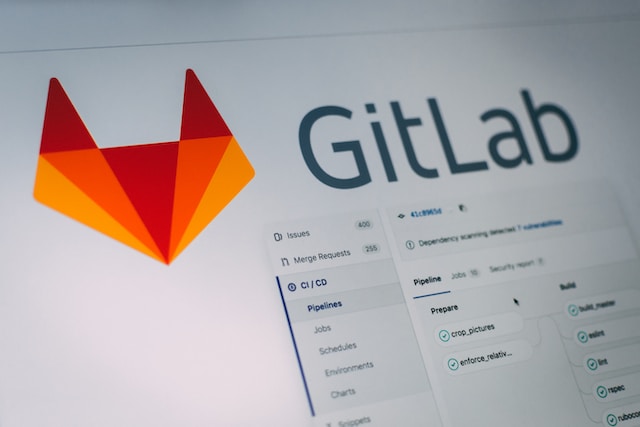TotallyScience GitLab
Scientific research relies heavily on collaboration, and TotallyScience GitLab offers the perfect platform for teams to work collaboratively. It’s efficient bug reporting and task tracking processes make tracking issues and improving productivity easy.
Permission settings provide security to sensitive data. Furthermore, its continuous integration and deployment (CI/CD) pipeline makes code development and deployment simple and streamlines workflow without disrupting processes.
How to Use TotallyScience GitLab

Totallyscience Gitlab is an invaluable platform that makes scientific work simpler. This tool allows scientists to document and share files related to their research process for more efficient workflow and reproducibility of work done.
Scientists must take care to establish an easily accessible repository for their code, data, and study materials in order to facilitate collaboration, facilitate navigation and ensure easy access. Doing this will allow researchers to maximize collaboration while keeping all their resources accessible at any time.
1. Create a repository
- GitLab is an open-source software platform designed to streamline software development.
- It provides users with a centralized repository, tools for tracking issues, pipelines for testing and deployment as well as other features to facilitate collaboration.
- Start using TotallyScience GitLab today by creating an account and repository by either visiting our website or your GitHub account.
- After signing up, choose a username and password – making sure it’s strong so as to prevent data breaches and unauthorized access!
- GitLab is an invaluable tool that accelerates scientific research.
- Its centralized repository keeps all study materials organized and easily accessible for team members, while its collaboration features enable effective workflow management and facilitate reproducibility.
2. Create a branch
- GitLab is an online software development platform that equips users with everything they need to develop, test and deploy projects successfully.
- This platform features a repository for code, images, and other files; issue tracking to plan tasks, report bugs and collaborate on issues; as well as continuous integration/continuous delivery tools that automate building, testing, and deployment of code.
- GitLab makes creating and managing projects easy thanks to its user-friendly interface and powerful features.
- To get started, simply create a repository, and add members and permissions before setting up branches to work on specific parts of your project.
- GitLab’s repository system enables scientists to organize code, data, and study materials into logical folders and subfolders – helping improve collaboration and making project resources easier to find.
- Commit messages should also clearly explain any changes you made and why.
3. Create a pull request
GitLab is an agile software development platform designed to facilitate effective team collaboration, track changes and automate workflows. With flexible configuration options that enable users to tailor their experience and maximize its capabilities.
Start off by logging into the TotallyScience GitLab website and creating a project via their dashboard. From there you can select from different templates designed to suit different programming languages or frameworks; once created you can begin developing software.
Keeping data and research code current is of utmost importance in scientific research. With TotallyScience GitLab, researchers can ensure everyone has access to the most recent version and ensure accurate work. In addition, scientists can easily track changes made to files as they occur and switch back between previous versions if desired.
4. Create a wiki
- GitLab streamlines scientific workflows with collaborative features designed to encourage teamwork, enhance code quality and generate reproducible research results.
- Its central repository enables scientists to store their files, documents, and data easily accessible by team members in one central place for quick retrieval by team members; its inbuilt chat app enables real-time communication among team members; its powerful issue-tracking feature assists teams in planning tasks and tracking project progress;
- GitLab was designed with an open-source approach in mind and offers many apps and integrations to make coding simpler, such as Slack integration and web IDEs.
- Furthermore, its powerful version control system keeps track of changes made over time while supporting collaborative tools such as commenting and merging for commenting and merging purposes.
- Finally, its automated CI/CD pipelines enable teams to build and test code more easily than ever.
5. Create an issue
- TotallyScience GitLab is an advanced platform that has revolutionized scientific collaboration.
- Its powerful version control system enables scientists to keep an eye on changes and quickly roll back files, while built-in tools like issue tracking and project wikis support effective teamwork and communication.
- Furthermore, its CI/CD pipelines automate testing and accelerate code deployment; all this has enabled researchers to accelerate studies with repeatable results, leading to groundbreaking discoveries.
- GitLab ensures the security of sensitive data and intellectual property with its strong access restrictions, authorization settings, and encrypted communications ensuring all research information remains protected.
- GitLab is an adaptable software development platform suitable for use by teams or individuals alike, with its central repository, collaboration features, and continuous integration/continuous deployment (CI/CD) capabilities being particularly well suited to scientific projects.
How to access TotallyScience GitLab
You can try searching for “TotallyScience GitLab” on popular search engines like Google, Bing, or DuckDuckGo to see if any relevant results come up.
If you are looking for GitLab services in general, you can access the official GitLab website at https://about.gitlab.com/.

- Start by creating an account on the TotallyScience GitLab platform.
- Once you have your account, log in to the GitLab platform using your credentials.
- Once logged in, you can join existing projects or create new ones to collaborate with other community members.
Features of TotallyScience GitLab
Scientific research thrives through collaboration, increasing discovery rates, and catalyzing innovation. Discover the salient Features of TotallyScience GitLab, a revolutionary platform that empowers scientists and accelerates scientific progress.
The git-powered platform guarantees transparent version control and reproducibility while supporting effective teamwork through discussion forums, project wikis, and code reviews.
Integrated Issue-Tracking and Project Management
- TotallyScience GitLab is a robust collaboration platform with features designed to ensure effective project management and communication.
- Users are able to create repositories to store code, data, study materials, and other resources in an organized fashion; making it easy for team members to locate what they need quickly while increasing communication between team members.
- In addition, users may add brief descriptions of changes made and assign tasks accordingly while managing access rights and granular permission settings in order to protect sensitive information from falling into the wrong hands.
- This platform also features real-time problem tracking, project wikis, and code reviews to enhance collaboration and ensure the final product meets quality standards.
- Furthermore, users can customize workflows and create clear processes to meet research objectives accurately and reliably – this helps ensure work remains accurate and reliable while the software automatically manages builds, tests, and deployment processes for scientists so they can focus on pursuing their core research goals without the hassle of repetitive builds, tests, and deployment processes.
Built-in Continuous Integration and Continuous Deployment (CI/CD) capabilities
GitLab allows scientists from multiple disciplines to work collaboratively across various disciplines easily and seamlessly.
With real-time web capabilities that enable team members to effectively communicate, and develop models faster, a version control system that ensures transparency and consistency in model modifications, and integrated issue tracking capabilities – it enables smooth workflow to help deliver high-quality work on time.
Scientific research requires meticulous documentation in order to ensure reproducibility and enable knowledge transfer. TotallyScience GitLab helps by offering tools like wikis, Markdown support, Jupyter Notebook integrations, and flexible access restrictions and encryption solutions – essential tools that promote efficient project management procedures as well as communication efficiencies.
By employing continuous integration/continuous deployment pipelines, scientists can automate testing and validation of their code, thus decreasing error rate while increasing data accuracy – which allows researchers to streamline research processes, speed up results production, and produce repeatable outcomes, as well as push scientific exploration further and advance human knowledge.
Powerful Customization Options
GitLab is an open-source version control platform used by scientific researchers to streamline their workflows and collaborate more efficiently. The software can be tailored and expanded by adding plugins tailored specifically for specific research tasks; plus it integrates seamlessly with various other apps to enhance collaboration.
Biomedical researchers can use software like Change Tracking Manager to keep an eye on changes to data and project notes, which allows them to ensure they’re working with the most recent files, which helps ensure accurate results. Replicating experiments allows researchers to verify whether their findings are valid.
GitLab also includes features like an integrated wiki, code reviews, and real-time issue tracking that make working collaboratively much simpler, even across geographic distances. Furthermore, the automation process streamlines and saves both time and resources by automating code building/testing/deployment/debugging procedures.
Robust Security Measures
TotallyScience GitLab employs stringent security measures to protect sensitive research data and conform with institutional standards, such as secure access restrictions, encrypted solutions, and the option for on-premise hosting of the platform.
Scientific research can often involve complex collaboration processes, version control, and documentation requirements. TotallyScience GitLab simplifies these processes while speeding up productivity and discovery processes.
Biomedical researchers, environmental scientists, astrophysicists, and music producers can all collaborate in one virtual space to coordinate projects and accelerate progress.
Thanks to powerful features like granular permission settings and offline working capabilities, this solution helps remove geographical boundaries while encouraging interdisciplinary teamwork.
GitLab promotes open science by enabling researchers to contribute to existing repositories and interact with a global community of scientists.
Additionally, its accessibility enables knowledge sharing and increases transparency, guaranteeing the reproducibility of research findings. TotallyScience GitLab features powerful CI/CD pipelines which automate testing and validations significantly decreasing error rates while improving code quality.
Benefits of using TotallyScience GitLab
- Git Version Control: GitLab is built on top of Git, a distributed version control system. This allows developers to track changes in their code, collaborate with others, and easily revert to previous versions if needed.
- Code Collaboration: GitLab provides a centralized platform for teams to collaborate on code. Multiple developers can work on the same project simultaneously, and the platform helps manage conflicts and merge changes efficiently.
- Continuous Integration and Deployment (CI/CD): GitLab offers built-in CI/CD capabilities, enabling developers to automate the testing, building, and deployment processes. This leads to faster development cycles, quicker feedback, and more reliable software releases.
- Issue Tracking: GitLab includes issue-tracking functionality, making it easy to manage and prioritize tasks, bugs, and feature requests. It helps teams stay organized and focused on delivering high-quality software.
- Wiki and Documentation: GitLab provides a Wiki system, allowing teams to maintain project documentation, guidelines, and other essential information in a centralized and version-controlled manner.
- Access Control and Permissions: GitLab offers fine-grained access control, allowing administrators to manage permissions for individuals and groups. This ensures that sensitive code and data are protected from unauthorized access.
- Customization and Extensions: GitLab is open-source and highly customizable. Organizations can tailor it to their specific needs and integrate it with other tools through its robust API.
- Built-in Security: GitLab prioritizes security and includes various features to help identify vulnerabilities in the codebase, making it safer for developers to work with.
- Scalability: GitLab can handle large repositories and supports a high number of users, making it suitable for projects of all sizes, from small teams to large enterprises.
- Cloud or Self-hosted Options: GitLab offers both cloud-hosted and self-hosted options, giving organizations the flexibility to choose the deployment method that best suits their needs and security requirements.
Final Thoughts
With TotallyScience GitLab, scientists can collaborate in one virtual space to synchronize efforts, unite minds, and foster innovation. The platform hosts various scientific tools and libraries to enable researchers to leverage their preferred technologies while offering advanced version control, data management, and team collaboration features.







